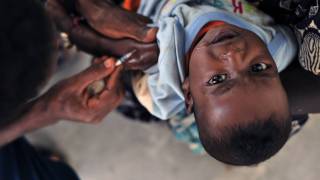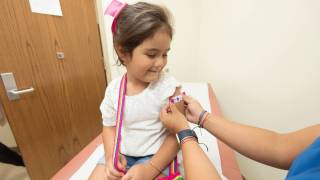Europe’s Measles Outbreak May Exceed 2018

The measles outbreak in Europe appears to be expanding during 2019.
In the first two months of 2019, approximately 34,300 measles cases have been reported in 42 countries of the World Health Organization (WHO) European Region.
As of March 28, 2019, the vast majority of these new measles cases have been reported in Ukraine, with more than 25,000 cases.
This news compares with 2018 when 82,596 individuals in 47 European countries contracted measles.
The WHO said in its Disease Outbreak News on May 6, 2019, ‘If the measles outbreak response is not timely and comprehensive, the virus will find its way into more pockets of vulnerable individuals and potentially spread to additional countries within and beyond the European Region.’
As an example, the Philippines has reported 31,056 measles cases in 2019.
The WHO says most measles cases in the European Region are occurring in unvaccinated or under-vaccinated individuals, even though the estimated coverage for the 2nd dose of measles vaccination in 2017 was 90 percent.
Measles is a highly contagious viral disease and one of the leading causes of morbidity and mortality among young children globally, despite the availability of a safe and effective vaccine.
The virus transmission from person-to-person is airborne, as well as by direct or indirect contact of secretions of an infected person.
A measles patient is usually infectious 4 days before the start of the rash to 4 days after the appearance of the rash, says the WHO. Vaccination is the best way to prevent the measles disease from spreading, says the WHO.
In the USA, most of the measles cases result from international travel. The disease is brought into the United States by unvaccinated people who get infected in other countries.
The current measles outbreak in the USA can be traced to international travelers from/to Israel.
Typically 2 out of 3 of these unvaccinated travelers are Americans. They can spread measles to other people who are not protected against measles, which sometimes leads to outbreaks.
Before departing on international travel, the US Centers for Disease Control and Prevention (CDC) says:
- Infants 6 months through 11 months of age should receive one dose of MMR vaccine
- Children 12 months of age and older should receive two doses of MMR vaccine separated by at least 28 days
- Teenagers and adults who do not have evidence of immunity* against measles should get two doses of MMR vaccine separated by at least 28 days
In the USA, most pharmacies offer measles vaccines, such as MMR-II and ProQuad.
Additionally, the CDC says to check measles travel notices, which can be found at Travel Alerts.
Pre-travel counseling sessions can be scheduled at Vax-Before-Travel.
Relevant Links: CDC vaccination schedules, CDC vaccine price list, international travel alerts, and report vaccine side effects.
Our Trust Standards: Medical Advisory Committee
























